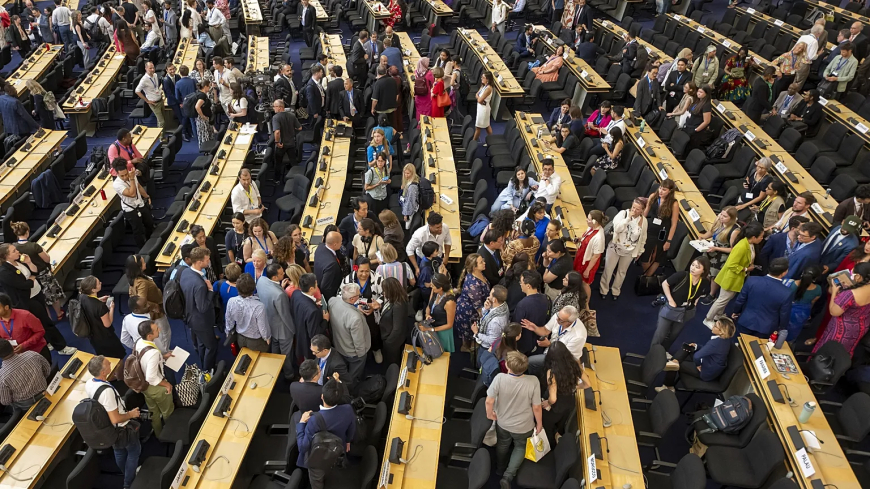U.S. Pushes Back at Geneva Talks, Casting Doubt on Global Plastics Pollution Treaty
The U.S. takes a tough stance at Geneva talks, raising doubts about a global plastics pollution treaty aimed at protecting oceans and human health.

Geneva, Tuesday, August 19, 2025 — The United States took a firm and cautious stance during the latest round of international negotiations in Geneva this week, raising doubts over the future of a global plastics pollution treaty that has been under discussion since 2022. The treaty, championed by environmental groups and several European nations, is intended to reduce plastic waste, protect marine ecosystems, and address the mounting health risks associated with microplastics.
A Divided Table in Geneva
Delegates from over 170 countries gathered in Switzerland to work toward an ambitious legally binding agreement on plastics. While many nations are advocating for a sweeping treaty with enforceable restrictions on production and waste management, U.S. representatives signaled hesitation over commitments that could impose what they called "disproportionate economic burdens" on domestic industries.
Critics argue that the U.S. position could derail progress on a treaty that has the potential to reshape global manufacturing and safeguard oceans from the 11 million metric tons of plastic entering waterways each year. Supporters of the agreement say the delay threatens not only marine biodiversity but also human health, as microplastics have been found in drinking water, food, and even human blood.
U.S. Concerns: Economy vs. Environment
American officials pointed to concerns over compliance costs for U.S. companies and the potential impact on jobs in the plastics and packaging industries. One delegate emphasized that the U.S. supports reducing plastic waste but prefers voluntary commitments and "market-based solutions" over binding regulations.
Environmental advocates, however, argue that voluntary measures have historically failed to stem the tide of global pollution. "Without accountability, we are simply postponing a crisis that is already here," said one policy analyst from the Center for International Environmental Law.
Global Pushback and Rising Frustrations
European Union nations, along with countries like Japan and Kenya, expressed frustration with Washington’s reluctance. Many argued that the treaty must include production caps on virgin plastics and strict enforcement mechanisms if it is to have any real impact.
"The science is clear. Plastic pollution is poisoning our oceans and our communities," said a delegate from Norway. "Every delay costs lives, ecosystems, and opportunities to reverse the damage."
The divide between developed and developing nations also remains sharp. Developing countries, many of which bear the brunt of imported plastic waste, are demanding stronger action and financial assistance to build recycling and waste management infrastructure.
Health and Environmental Stakes
Scientists warn that the stakes extend beyond the environment. Studies link plastics to hormonal disruption, cancer risks, and respiratory illnesses, particularly in vulnerable populations. Black and low-income communities in the U.S. have been disproportionately exposed to the effects of plastic production, particularly in petrochemical hubs along the Gulf Coast.
Environmental justice advocates argue that a global treaty could serve as a safeguard for these communities, while critics of the U.S. position claim Washington is prioritizing corporate interests over public health.
What Comes Next?
Negotiators are expected to reconvene in early 2026, but doubts remain over whether consensus can be reached before the United Nations’ self-imposed deadline for finalizing the treaty. Without U.S. support, analysts say the agreement could lose its teeth, raising fears of a fragmented approach where individual countries set uneven standards.
For now, the Geneva talks highlight the growing tension between economic interests and urgent environmental needs. As pressure mounts from environmental groups and coastal communities worldwide, the U.S. faces increasing scrutiny over its role in shaping — or stalling — a global solution.
What's Your Reaction?
 Like
0
Like
0
 Dislike
0
Dislike
0
 Love
0
Love
0
 Funny
0
Funny
0
 Angry
0
Angry
0
 Sad
0
Sad
0
 Wow
0
Wow
0








































































